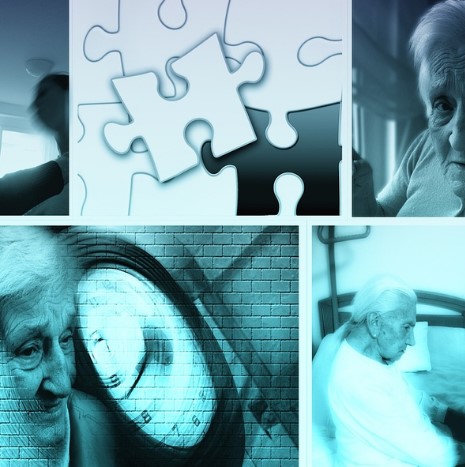
Dementia: recognising the early signs
While the majority of people with dementia are over 65 years of age, in very rare cases it can be seen in younger individuals. How can we identify the first signs of dementia? How can we support people suffering from this syndrome? Here are some answers.
What is dementia?
According to the World Health Organisation (WHO), dementia "is one of the leading causes of disability and dependence among older people worldwide". It may also be referred to as senile dementia.
It is a syndrome that is most often progressive and degrades the cognitive function of the person. Although this pathology almost exclusively affects the elderly, "it is not a normal part of ageing", says the WHO.
The symptoms of dementia
Symptoms can vary from one individual to another. While the first signs may go unnoticed by those around them, they intensify over time until they usually lead to a total loss of independence. Several stages of dementia can be identified.
The first signs
- Memory loss.
- Disorientation, even in familiar places.
- Loss of sense of time.
The second stage of the disease
- Severe memory loss: difficulty remembering people's names or recent events.
- Difficulty performing everyday tasks such as eating, washing or going to the toilet.
- Problems in using language.
- Severe disorientation.
Late stage dementia
- Total loss of independence.
- Personality changes and aggression.
- Difficulty moving around.
- Loss of sense of time and place.
- Inability to remember loved ones and past events.
In advanced stages of the disease, the person may "have difficulty swallowing food without choking. These problems increase the risk of malnutrition, pneumonia (often due to inhalation of secretions or particles through the mouth) and bedsores (because they cannot move).
The different forms of dementia
Degenerative dementias represent the vast majority of cases of neurological diseases leading to an alteration in cognitive abilities. Examples include :
- Dementia with Lewy bodies: this causes hallucinations, motor disorders, mood and behavioural disorders, among other things;
- Frontotemporal dementia: is characterised by several symptoms such as personality changes, physical neglect, inappropriate behaviour and disinterest in loved ones. Amnesia occurs in a second stage of the disease;
- Alzheimer's disease: the most common. It is manifested by memory loss, disorientation, behavioural changes, and difficulties in speaking and writing.
Some dementias are not degenerative, i.e. they do not result from a degeneration of neurons like vascular dementia. It most often affects people with vascular comorbidities. It is the result of strokes.
The causes of dementia
Dementia is caused by different types of diseases affecting the brain. The best known is Alzheimer's disease.
Stroke is also a risk factor in the development of dementia.
Can dementia be cured?
At present, there is no real treatment to cure dementia or to slow down its progression. Early diagnosis of the disease and the introduction of a treatment will nevertheless make it possible to accompany and relieve the patients on a daily basis.
On its website, the WHO states that the risk of dementia can be reduced by :
- exercising regularly
- not smoking
- avoiding harmful use of alcohol
- controlling your weight
- eating a healthy diet
- maintaining healthy levels of blood pressure, cholesterol and blood sugar.
You may also like to read / También te puede interesar leer
- What is narcissistic personality disorder?
- Emotional dependence and lack of self-confidence
- What is narcissistic personality disorder?
- How to become a good leader?
- Left-handed people are exceptional: Science says so
- What is the difference between the novel and the short story?
- Interesting Conversation Topics: Questions to Ask
- How to improve your concentration when working or studying

